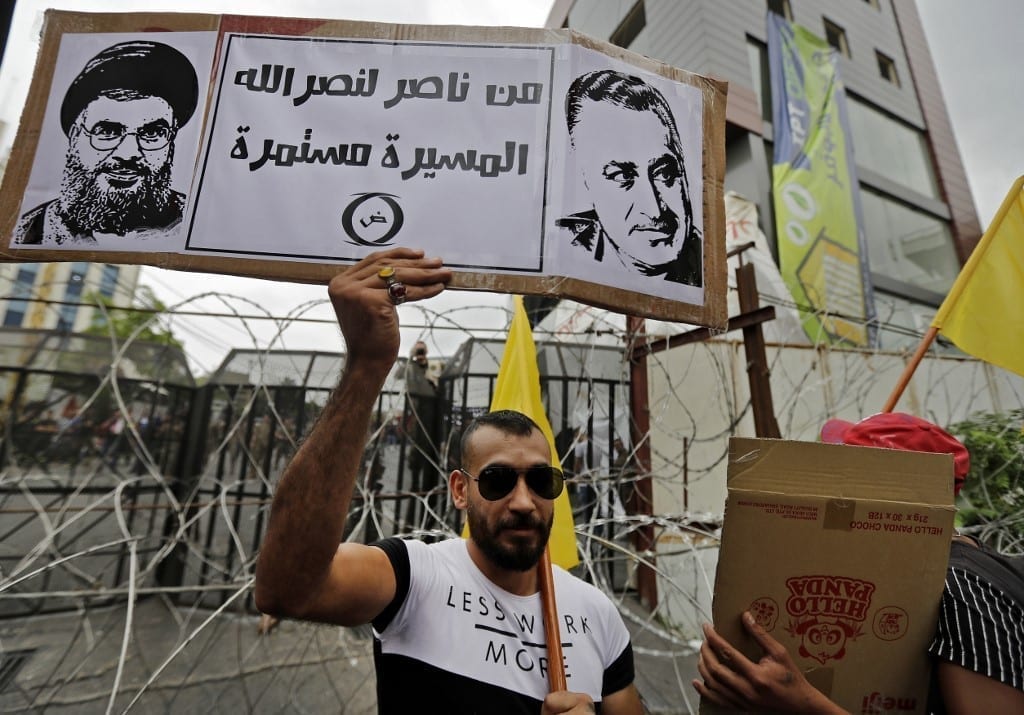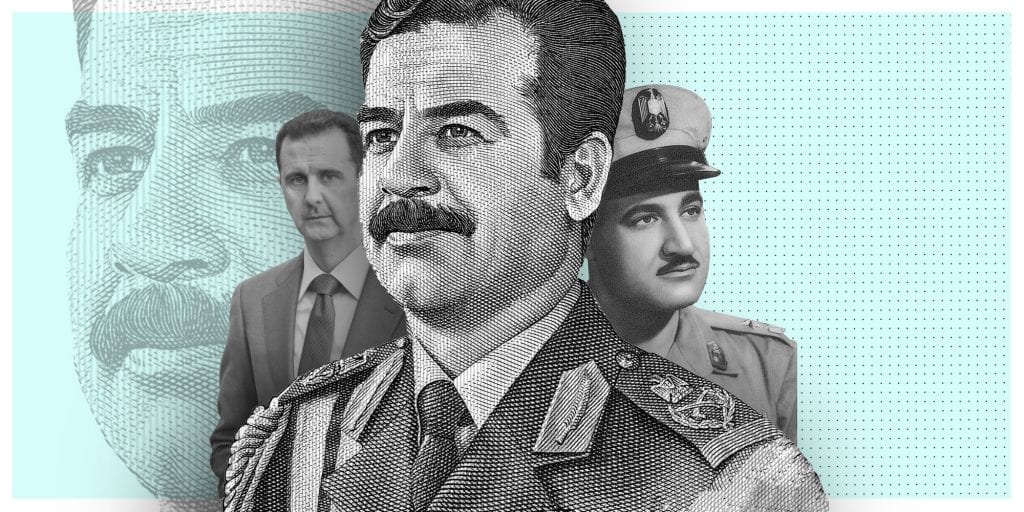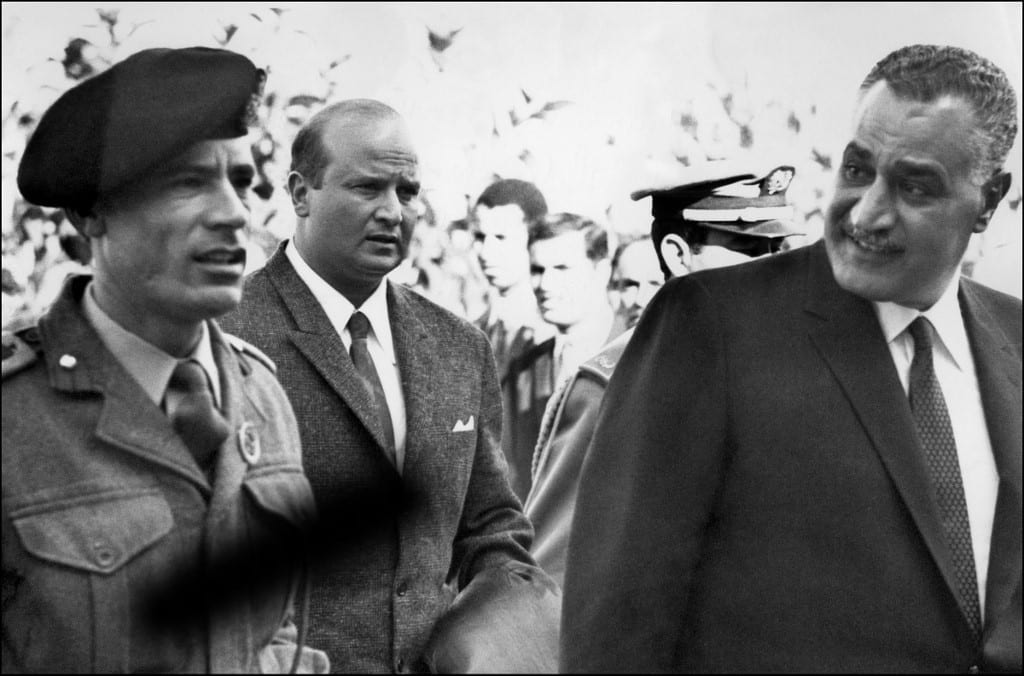- (A commentary on the heated debate that was stirred up in the Egyptian newspaper, Al-Shorouk.)
Over the past few weeks, a heated debate stirred up in the Egyptian newspaper “Al-Shorouk” on searching for new leadership in the Arab world, and hence breathing life into what seems to be a long dead concept, namely: political Arabism.
But why bring up the topic of Pan-Arabism now, let alone its leadership?
Isn’t what we know about its defeats and the bitterness we’ve repeatedly experienced from it enough to banish the notion to oblivion? Except for a few hard-to-remember exceptions, the Pan-Arabism that we had met could be described as a synonym of failure. This debate is casually taking place now, while the Israelis publicly “consult” on the final annexation of more usurped Arab lands, with no single Arab voice denouncing their act except for the Kingdom of Jordan. As one of the debaters have pointed out, not a single demonstration was staged in any Arab country to condemn the threat of usurping what remains of Palestine. Conversely, some Arab countries, specifically from the Gulf, which were hailed as the regions where it is now suitable for them to take the lead of the Arab region, are racing to consolidate their relations with Israel even more deeply.

In the meantime, Iran, the “Islamic republic”, has a powerful influence in Iraq, Lebanon, and Yemen, an influence that is near-total control along with a military presence and influence in Syria that should not be taken lightly, while Turkey has become a key player in Syria and is expanding its power in war-stricken Libya. Hasn’t the Pan-Arabism we’ve known for more than a century played a fundamental role in getting us here? Or is there some kind of new Pan-Arabism that we could breathe life into?
The seeds of authoritarian regimes in more than one Arab country, those who cannot stand a Pro-Palestine protest or any other protests, were planted by the stalwart “leaders” of Pan-Arabism. This “founding generation” consisted of varying degrees of populism, in a time where controlling the media was possible under less severe economic conditions, and along a common perception that the models who combined between the economic growth and authoritarianism (the former “Eastern Bloc”) were successful, thus political action capabilities were was much broader (those needed by any ruler whether willingly or unwillingly, democratic or Authoritarian).
Those who survived the days of the 1960s, (A very long time ago by today’s standards) met their doomed fate. As we have seen in Gaddafi’s case, who said that Gamal Abdel Nasser, the “Eternal Leader”, once told him, “I see my youth in you”. Wasn’t this Pan-Arabism a cornerstone in the tyranny structure that doomed us to the liquid political state (political vacuum) and the horrific instability that we experience today?
Pan-Arabism first originated as a political project in the time of the decaying Ottoman Empire, with its rise coinciding with the struggle of the surviving subjects of what remained of the Sultanate, both Arabs and non-Arabs, to form a democratic and constitutional structure. Then came the known history of Abdul Hamid II authoritarianism and his antagonism towards the parliament and the Constitution, and the coup that ousted him in (1908). Political Pan-Arabism, however, unfolded to be a synonym of dictatorship and oppression, and before that time and simultaneously, it suffered one defeat after another. After the fall of “Great Arab Revolt”, including the utter defeat before the French in Syria, a short Hashemites rule in Iraq that ended in a bloody coup derived from what happened in Egypt 1952, followed by other coups and assassinations, similar unrest in Syria went on after a foiled unity project with Abdel Nasser’s Egypt. We saw the Iraqi and Syrian “Baathists” with their bloodshed and the high price we had to pay for decades to come.


“The Eastern Gatekeeper”, the Baathist Saddam Hussein, with his horrendous oppression, dragged Iraq into catastrophic wars with their known grave consequences (the second war was the invasion of Kuwait after being “lured” to wage it, according to one of the debaters. How naïve our poor tyrants are!).
The experienced officer Hafez al Assad had no victories but his oppression and massacres, let alone his legacy, which was unmistakably evident. In Egypt, where Pan-Arabism spread later than its neighbors, the “Eternal Leader” Abdel Nasser, a military officer, waged three wars in which he was defeated, and despite this there are still some people among us, as this debate has proved, who still believe in his populist leadership (before it became popular) as a victorious time.
The examination of Abdel Nasser and his “inspiring” role model closing account was best summed up by his own words in the June 1967 catastrophe: “I bear full responsibility.” If Abdel Nasser was held accountable for the war of 1956 we wouldn’t have been doomed to the Yemen War (1956), which was from a military point of view, an utter defeat. Only the USA and the former Soviet Union exerting their pressure saved Egypt from the invading states, as for Israel, it gained the right of navigating in the Gulf of Aqaba. Likewise, if he was held accountable for the Yemen War (as Arabs fought Arabs) we wouldn’t have witnessed the major catastrophe of June 1967.
It really strikes me when somebody brings up the legacy of Pan-Arabism without first examining how our countries were run by those who ruled in its name. It is even worse when people keep justifying, finding excuses, or making light of its catastrophic mistakes.


However, Egypt’s past “leadership” and “pioneering” role had already started before Gamal Abdel Nasser. Before the Age of Oil, Egypt was not only the wealthiest Arab nation (or the least poor, to be more accurate), but also, and most importantly, had a pioneering modernization movement that lasted for a century and a half, and ended with a liberal-democratic environment. This movement had faltered many times, but despite its drawbacks, had built a good deal of institutionalization and unprecedented space of openness and freedom in our region.
With this legacy, Gamal Abdel Nasser succeeded in creating media outlets able to reach all Arabs and made use of the country’s cultural value in general. However, Gamal Abdel Nasser, who was anti-democracy, and, like some of his political Pan-Arabism companions and students, came to power through a military coup (that was previously called “The Blessed Movement” then the “23rd of July Revolution”), ended up creating an environment where freedom of the thought was either restricted or absent, thus undermining Egypt’s cultural value and weight (not the other way around as claimed by his supporters). He established an autocratic rule and a political culture, in Egypt and the whole Arab region, which caused many people to fantasize about this “Ethical Tyrant”, without noticing the contradiction in this term. This is the legacy of those who ruled in the name of Pan-Arabism.
If we accept that the precarious current situation is mainly a result of the absence of democracy, pluralism, and accountability, we will find that the path for redemption requires a ruling that is the complete opposite of its precedents. Hence, there is a need for a context where Pan-Arabism is no more than one of the available options. Ultimate sacredness should not be associated with Pan-Arabism nor with any other political belief, except for freedom of choice and pluralism, and the only way to that is to sanctify individuals’ freedoms and their right to choose their beliefs and identities. Unlike what the pre-World War II common notions we were brought up under would have us believe, freedom can in fact be the path towards unity.What we share is much greater than what brings the European Union together, and we don’t even have the European bloody history that its last chapter was World War II. However, the European Union was formed after conducting a series of referendums, each one of them requiring marketing for certain options based on the freedom of joining and withdrawal, in addition to common standards of freedoms, rule of law, and environmental conservation. Furthermore, in Europe and within the borders of its countries, Scotland is ruled by a party whose declared goal is to leave the UK. This goal was even almost achieved through a referendum that was conducted a few years ago, if it wasn’t for a small difference of votes. Now, this party is still publicly talking about repeating the attempt to leave the UK after Brexit, which was opposed by most Scots.
Abdel Nasser established an autocratic rule and a political culture in Egypt and the whole Arab region, which caused many people to fantasize about this “Ethical Tyrant”, without noticing the contradiction in the term. This is the legacy of those who ruled in the name of Pan-Arabism.
In Belgium, there is a legal and recognized movement that aims for the independence of the Flemish Region, where people speak the Flemish language (which is very similar to the Dutch language). Even in Spain, there was an internecine conflict regarding the independence of Catalonia and its referendum which caused some politicians who called for independence to be imprisoned on charges of procedural violations. However, those who advocated independence restored their authority over the parliament of the region. Which is better; a peaceful union with the possibility of federalism, confederation, or even withdrawal, or rather creating a blood-dimmed tide in the name of unity and Pan-Arabism? Isn’t the oppressing imposition the reason behind the current situation of modern and fragile entities (that were formed after World War I) like Syria and Iraq? When did the alliances of individual rulers in our region, not people, manage to succeed? Even the Gulf Cooperation Council that was the best model for successful regional cooperation seems now like a part of history…
Regardless of the politics and the nationalism, Pan-Arabism is a cultural phenomenon that is not based on race or tribal origin, but on the Arabic language which falls a victim to countries ruled by regimes that never prioritize education and culture, and even when they do their best it is never enough to stop the marginalization of that prestigious language and the cultural deterioration of it. How could we talk about Pan-Arabism? Do we really know what it means while we keep murdering the Arabic language with a degraded state of the educational systems and cultural contexts where freedom usually ranges between a restricted or absent state, with creativity being clearly oppressed?
If creativity and thus cultural enrichment require freedoms like those usually oppressed and antagonized by Arab regimes, then there must be a space to work on giving free rein to those freedoms (if any existed). This space should normally exist within the current political entities, it should revolve around individuals and refuse the oppression of individuals and society under the name of alleged units that were never recognized in history except for maybe a contemporary illusion or a failed project. Do you remember when the “twig” of Kuwait returned to the “branch” of Iraq in 1990 and the devastation that came after? Or the phrase “One people in two counties” by which the House of Assad referred to Lebanon and Syria? Why is there an entity called the “Syrian Arab Army”? What is wrong with being Syrian or Iraqi or anything else? And how could a modern fragile entity like Syria be stable when there is an established assumption that its existence is a crime against the alleged unity? Isn’t the time ripe for the burial of myths such as “Dividing what is divided and splitting what is split”?
Since the time of Omar bin Al-Khattab, Muslims, Arab and non-Arab, never agreed and united on one ground nor did they have a settled nation, so will we ever disregard this misleading selective history?
This misleading selective history exists and has a far-reaching impact. One of the odds of the Pan-Arabism legacy is its confusing relation with its “rival”: the political Sunni Islam. “The Great Arab Revolt” aimed to replace the Ottoman Empire with an Arab Caliphate, knowing that they rarely further betook the Caliphate before being fallen upon fronting the Western forces. This “version” of the Pan-Arabism history is the same as what is known today by the Sunni “formal” version of history, a selective “firm” review ignoring the enormous wars and unrests the early Islam has been through which resulted in the emergence of three main sects: (Sunnah, Shia, Kharijites), referring the reasons behind such unrests to the “other” non- Arab and non- Muslims. Therefore, it was acceptable that the Christian founder of the Ba’athism movement Michel Afleq ends up as a Muslim (according to Iraqi stories upon his death). “His name was Ahmad Michel Afleq”, those words are still quoted, by one who participated in the debate on the Kurdish Shu’ubyyan Shorouk newspaper. It is also acceptable to find followers of political Muslims fond of Saddam Hussein. Where do the Muslim and non-Muslim minorities stand in this situation? Does the conceptual base of the Pan-Arabism plans and its resulting powers and restraints allow these poor decisions to question history, where a Ba’athist and an ISIS member takes as a basic approach?
If we admit that what we have been suffering for decades and what we ended up with is the result of power-based political culture, then consequently, will we have a different view of the Palestinian issue? Despite its tragedies, Palestine has not only been occupied and its people have been expelled, but also has been used as a present justification for suppression and its consequences. “No voice is louder than the voice of the battle”, yet battles are always lost. Allah is apparently always helping us and no defeat is suffered, and the exaggerated or even faked victories are celebrated. Palestine, an Arabian and Islamic nation and above all, is a concern taken by people bearing the identity of Palestinian, not any other identity. It is not a coincidence that Israel formally calls the people of Palestine, “Arab” as if this occupied country never existed and its expelled people’s homeland is with the “Arabs” wherever they are.
Being a lost cause so far (as indicated by a writer who called for the Gulf leadership) does not deny the Palestinian right, but should be accountable by parties who lost wars, insist on a military solution as the only resistance against a powerful enemy and suppressed or restrained a public movement for Palestine. Is it not better to seek and adopt passive resistance? Or will we be immersed in suppression and defeat forever? If the issue is a humanitarian- public before it became governmental and with a militarily superior enemy, why can’t it be left for the civil society? Why isn’t the street rage for Palestine taken as a weapon for negotiation, as is the undermined economic boycott? It is in the suppressor’s interest to convince you, not only by the threats and the present enemy, but also by the concept that there is no way to confront this danger but to support the leader, so that “patronizers are betrayers” as said in Abdel Nasser’s time. We all paid the price for this concept, but no loss is compared to the loss of the Palestinians.
Here, self-flagellation is not enough, we should change ourselves into a new essence. The Pan-Arabism conjunction with diversity and free choices does not require less than a complete new Pan-Arabism, in contrast to what we are used to. If we believe in the necessity for freedom in the first place, a strong civil society that believes in the Palestinian issue, a new overview on our history and diversity based on free identity and cultural Pan-Arabism leading to the ruling, not suppression, will that mean demolishing all the past and establishing new political culture? Or will we be committed to Einstein’s definition of stupidity: Doing the same thing over and over again and expecting different results?






